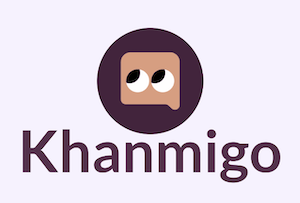In today’s fast-paced, tech-driven world, students have more tools than ever at their fingertips. Among the most powerful? Artificial Intelligence. From helping with homework to organizing study schedules, AI is transforming the student experience. But with so many AI tools available, a common question pops up: Which AI is the best for students?
Let’s dive in.
First, What Can AI Do for Students?
Before comparing tools, it’s helpful to understand how AI can support students in the first place. Here are a few key areas where AI shines:
- Writing assistance: grammar checks, style suggestions, or even idea generation.
- Research help: summarizing articles, locating credible sources, or answering complex questions.
- Study support: flashcards, quizzes, and personalized learning plans.
- Productivity tools: scheduling, reminders, and time management.
- Coding help: for students in tech-related fields, AI can suggest or debug code.
Now that we’ve set the stage, let’s look at the top contenders.
1. ChatGPT (OpenAI)
If you’re reading this, chances are you’re already familiar with ChatGPT. And for good reason; it’s one of the most widely used AI tools for students.
Strengths:
- Great at answering questions in a clear, easy-to-understand way.
- Can help brainstorm ideas for essays, projects, or assignments.
- Offers coding help, math problem explanations, and writing feedback.
- Versatile: can act as a tutor, editor, or study buddy.
Limitations:
- Answers are only as good as the questions you ask.
- Needs careful use in academic settings to avoid over-reliance.
Best for: General homework help, writing support, and learning explanations.
2. Grammarly

While Grammarly isn’t as broad as ChatGPT, it’s a lifesaver when it comes to writing.
Strengths:
- Provides real-time grammar, spelling, and style suggestions.
- Can help improve clarity and tone; useful for essays or reports.
- Offers a plagiarism checker in premium versions.
Limitations:
- Doesn’t offer deep research or brainstorming help.
- Some features are only available with a paid plan.
Best for: Editing and polishing written work.
3. Khan Academy’s Khanmigo

Khan Academy, a trusted name in education, now offers an AI-powered assistant called Khanmigo. It’s designed specifically for students and educators.
Strengths:
- Built with educational integrity in mind.
- Helps students learn concepts without giving away answers.
- Great for practicing math, science, and humanities in an interactive way.
Limitations:
- Still evolving : limited subjects for now.
- Requires a Khan Academy account.
Best for: Learning and practicing concepts responsibly.
4. Notion AI

Notion AI is built into the Notion app, which many students already use for note-taking and planning.
Strengths:
- Helps summarize notes, draft study plans, and organize tasks.
- Integrates well with existing student workflows.
- Can generate lists, calendars, and reminders.
Limitations:
- Works best if you’re already using Notion regularly.
- Some features require a paid subscription.
Best for: Organization, summarization, and productivity.
So, Which AI Is Actually the Best?
Here’s the thing: there isn’t one best AI for all students. It really depends on what you need.
- If you’re looking for a versatile assistant who can help explain things, ChatGPT is a top choice.
- If writing is your main challenge, Grammarly or Notion AI might be better suited.
- For a classroom-aligned tutor, Khanmigo is a strong option.
A Smart Tip: Use Them Together
Many students find success using a combination of tools. For instance, you might:
- Use ChatGPT to brainstorm an essay.
- Run it through Grammarly to improve clarity.
- Organize your notes in Notion with help from Notion AI.
Final Thoughts
AI can be a powerful partner in your education if used wisely. It’s not about replacing hard work, but enhancing your efforts. The best AI for students isn’t the flashiest one. It’s the one that fits your goals, respects academic integrity, and helps you learn more effectively.
So go ahead : explore, experiment, and find the AI mix that works best for you.

